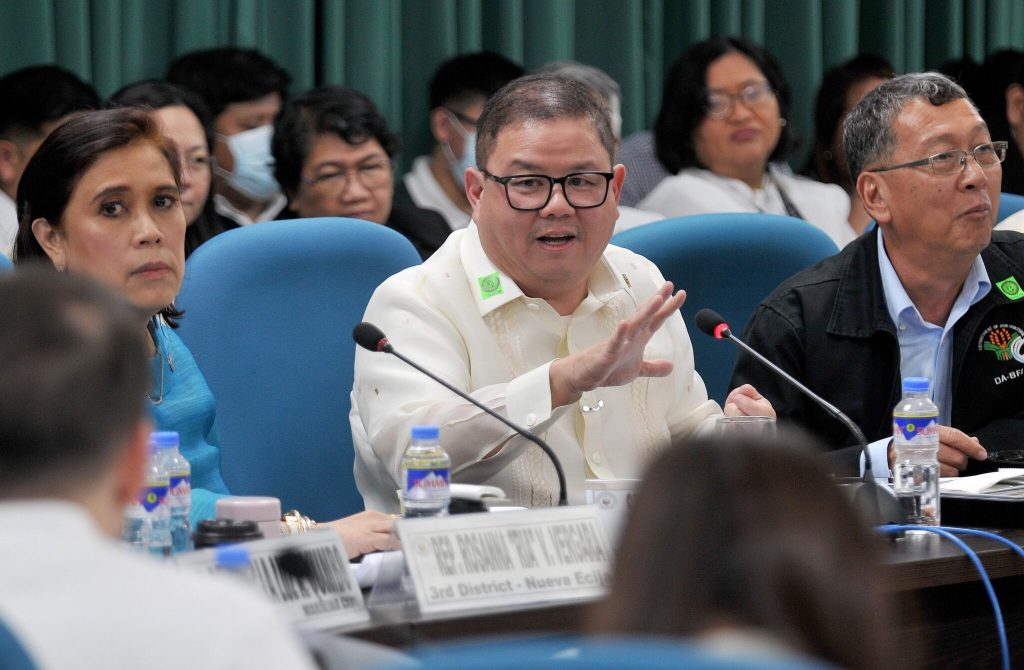
In his report to the House of Representatives’ Committee on Agriculture chaired by Quezon Rep. Wilfrido Mark Enverga, DA Secretary Francisco P. Tiu Laurel,
Jr. lauded the RTL as a landmark legislation that provided “the platform and infrastructure to increase the productivity and incomes of farmers even as competition arising from freer importation stands to benefit consumers.”
Since the law’s passage in 2019, especially with lawmakers’ inclusion of the provision that created Rice Competitiveness Enhancement Fund, the agri chief said hundreds of thousands of farmers have benefited from financial assistance, better seeds, technical services and training as well as farm machinery and equipment that were granted under the Rice Fund.
“We recognize that much needs to be done to ensure that we attain the best possible outcome vis-a-vis identified targets under RTL given the remaining time we have before the law expires,” said Secretary Tiu Laurel.
The role of rice, not just in food security but in determining economic policy, cannot be overstated at this time when global prices of the commodity had risen because of tightness in supply and worries over production due to El Niño.
The DA chief said changes to the RTL is needed in view of climate change that shortened the frequency of El Niño events to 3-5 years.
Given the lack of significant investments in agricultural infrastructures over the past 27 years, the DA supports the extension of RTL and the increase of Rice Fund allocated to enhance farmers’ productivity and competitiveness through greater mechanization, wider use of better technology and inputs including seeds and fertilizers, and an expanded network of postharvest facilities like dryers, mills, silos and warehouses.
“Mr. Chairman and members of the committee, the continuation of the RTL is the way to go. It is incumbent upon us to sustain the gains under RTL, albeit with critical modifications to strengthen it further and ensure optimum impact in its implementation,” Secretary Tiu Laurel said.
He said major amendments to the RTL that DA is proposing include:
⁃ strengthening the role of NFA as price stabilizer by restoring its ability to import if needed to boost domestic supply and only through the Authority of the DA Secretary; its warehouse registration and monitoring functions; and its power to regulate rice prices and market supply.
⁃ allocation of rice import tariff revenues exceeding P15 billion to various programs aimed at financial assistance, crop diversification, water impounding and watershed rehabilitation and development, and solar power irrigation programs.
⁃ extension of the Rice Fund until 2030, including reallocation of funds toward farm machinery and post harvest facilities, as well as storage and processing; seed development; and training and extension services, with special attention to soil health improvement initiatives and pest and disease management strategies to protect and enhance rice production;
⁃ creation of the Rice Industry Development-Program Management Office to serve as the Secretariat of the RCEF that will coordinate the Rice Fund’s interventions, monitor and manage a comprehensive database, and ensure activities of RCEF are effectively implemented.
“I note that the RTL is just one of the progressive efforts undertaken by the government to build productivity and enhance the resiliency of our agriculture sector and the economy in general. It is an imperative given that Philippine agriculture faces both the challenges of the volatilities caused by global conflicts and the difficulties posed by climate change and natural calamities,” he said. ###

